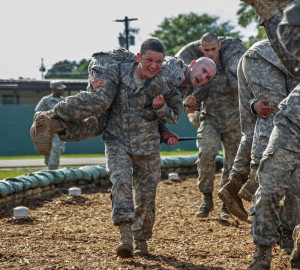One down, an untold number more to go as Donald Trump continues to spring new announcements on his Cabinet choices while preparing to become the next president of the United States.
Matt Gaetz lasted just a few days as Trump’s pick to become attorney general. Then he backed out and Trump then turned to former Florida AG Pam Bondi to lead the Justice Department.
I want to turn my attention briefly to Pete Hegseth, another of Trump’s eyebrow-raising selections for his Cabinet. Hegseth is Trump’s pick to become defense secretary. He is a Fox Propaganda Channel weekend blowhard on “Fox and Friends.”
His nomination might be headed for the Dumpster, too. A woman has accused him of raping her.; and he paid her money to keep quiet about an incident he says didn’t happen as she describes it. Moreover, he has said some inflammatory things about women, such as they don’t belong in combat.
Sheesh! What a clown!
I have been unable to stop thinking of a woman I know quite well who has served in combat in Iraq and Afghanistan. She is my first cousin; my mother and her father were siblings. She is retired these days and lives on the East Coast with her sons. I called her this morning to ask her; What do you think of Pete Hegseth’s comments about women in combat?
She didn’t hold back. He is unfit, she said. He has no experience, she added. Hegseth has no business being considered for a job for which he is wholly unqualified, she said.
My cousin knows a thing or three about combat. She deployed with U.S. Army Special Forces to Afghanistan before retiring from the Army as a master sergeant.
So, when my family member believes that Pete Hegseth has no business leading the world’s most lethal fighting force, well … I’ll stand with her any day of any week.
